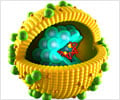Q: Which doctor can be consulted for hepatitis C treatment?
A: A specialist in Internal Medicine can diagnose the condition. You will be referred to a Gastroenterologist.
Q: Is Hepatitis C infection curable?
A: The infection is considered “cured” if a test called sustained viral response (SVR) measures the absence of detectable RNA of the virus in blood serum for at least 24 weeks after discontinuing treatment. Data suggests that the virus does not recur.
Q: Can I spread the hepatitis C infection without having symptoms?
A: Yes, it is possible as symptoms are usually not detected sometimes for years.
Q: How is it possible to have hepatitis C infection and not know it?
A: It is possible because the patient does not look or feel sick even with the infection.
Q: Is it dangerous to visit someone with hepatitis C?
A: No, it is not. Casual contact like talking, hugging, kissing, holding hands, and shaking hands do not result in spread of the disease.
Q: Can women with hepatitis C breastfeed their babies?
A: There is no evidence that breastfeeding spreads HCV. Hence breastfeeding is safe. However, if the mother has a co-infection with HIV, i.e. she has both HIV and HCV infection, she should abstain from breastfeeding since the chances of spreading HCV to her child are more.
Q: Is it safe to drink alcohol if I have hepatitis C?
A: No. It has been found that alcohol promotes the proliferation of hepatitis C virus in human liver cells.
Q: Can I take my usual medications if I have hepatitis C?
A: Consult with your doctor before taking any drug. Many of the drugs, especially the ‘hepatotoxic’ ones (those that damage the liver) are unsafe in a setting of hepatitis C.
Q: Can the normal liver enzyme results be normal and the patient still have the infection?
A: Yes. Many patients with the infection have normal liver enzyme levels.
Q: What is end-stage hepatitis C?
A: In end-stage disease, the liver has been irreversibly scarred and has lost most or all of its functions. The infection could also cause bleeding of the gastrointestinal tract and brain and nervous system damage.
Q: How do you take care of Hepatitis C virus (HCV) infected blood spills?
A: Even dried blood is infectious. A dilution of one part household bleach to 10 parts water has to be used to clean infected blood. Use of gloves is a must while cleaning.
Q: Can Human Immunodeficiency virus (HIV) and HCV viruses exist together?
A: Yes, they can. A person can be infected with both the viruses at the same time. Co-infection is common in people (50–90%) who are intravenous drug users.
Q: How long is the HCV active outside the body?
A: HCV can survive at room temperature on environmental surfaces for up to 3 weeks.
Q: Can HCV be transmitted through insect bites?
A: No, it has not been proved that HCV can be transmitted through insect bites.
Q: Is it necessary to test for Hepatitis C infection while being pregnant?
A: No. It is not a part of routine pregnancy tests that are performed.
Q: How does a person with chronic Hepatitis C infection take care of his liver?
A: Avoiding alcohol and checking with the doctor before taking any prescription pills, supplements or over-the-counter medications Precautionary measures have to be taken to avoid further liver damage. It is also important to get vaccinated against the Hepatitis A and Hepatitis B viruses.














